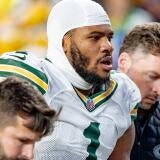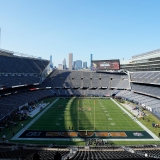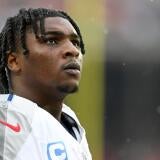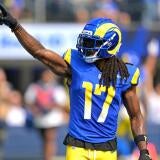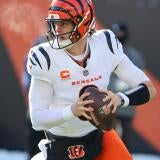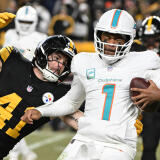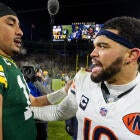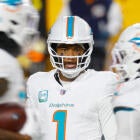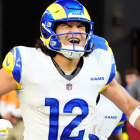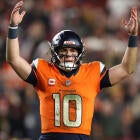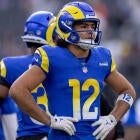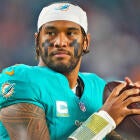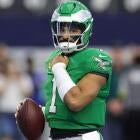
Why Alex Smith's epic Washington comeback story was always too good to be entirely true, and what comes next
The underbelly of NFL transactions doesn't leave much room for Cinderella stories
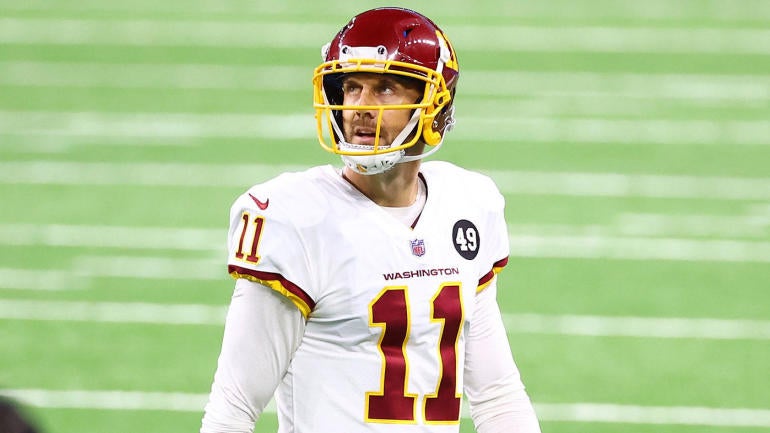
Some stories are just too good to be true. They sound a little too much like a fairy tale for the meat grinder that is major professional sports. The return of Alex Smith to the Washington Football Team certainly qualifies.
The physical comeback itself, and the heroic measures that Smith took on to overcome life-threatening injuries and infections and all of the surgeries and the incredible odds he shattered will live on forever as one of the more improbable and remarkable redemption stories in modern NFL history. But the idea that it was without tension, or conflict, or struggle, given all that was going on within that long-troubled organization -- the sentiment that this was a collective kumbaya endeavor between player and team -- was always naïve. It belied the economics and interpersonal dynamics and harsh realities of roster regulations, and salary caps and payrolls. The gleam is certainly off that part of the story now following Smith's candid but hardly unexpected remarks to GQ magazine published this week.
And for anyone still carrying delusions that Smith has a future in Washington, after the team's well-documented hunt for new quarterbacks and given the obvious limitations in Smith's game (only natural given what he has gone through), the fact that he suffered another injury to his repaired leg in-season, and with WFT giving playoff revelation to Taylor Heinicke … well, come on now. This is the NFL. When it comes to money and power and the inherent conflict between team and individual (i.e. Ben Roethlisberger versus Pittsburgh Steelers as playing out right now), things tend to get messy and this situation had uber-messy tendencies that frankly were handled better than could be expected publicly during the season.
Smith even playing at all required one quarterback being benched in the first month of the season that new coach Ron Rivera never wanted in the first place (2019 first-round pick Dwayne Haskins) and the system-guy who was always going to get his shot to show what he could do -- Kyle Allen, who played for Rivera in Carolina -- getting seriously injured almost immediately thereafter to thrust Smith into duty in Week 5. It required improbable circumstances all around to get this arranged marriage together on the field at all, at least for a few weeks until Smith was injured.
For those who may have missed it, Smith, 36, told GQ that his return "definitely threw a wrench in the team's plans," and Washington "didn't want me there, didn't want me to be a part of it, didn't want me to be on the team, the roster, didn't want to give me a chance. … Heck no they didn't want me there." Smith explained the dustups between him and the front office over his roster status and whether he should be on the Physically Unable to Perform list or on Injured Reserve. Of course, the timing of all of this was awkward and uncomfortable. And it was understandable the team would have reservations about playing someone who dealt with such a life-changing injury on the fly -- in a year with no pre-season -- unsure of what that might look like and how that might play out. Of course, it took a bizarre series of events to reach even that point.
If any of this truly caught you by surprise, then shame on you; you probably weren't paying very close attention to the myriad factors at play. And if Smith's blunt commentary offends you, or takes you aback, then shame on you as well. Smith had every right, after accomplishing what he has and enduring a grueling recovery largely isolated and on his own, to speak his mind and pull back the curtain on any facades others may have been harboring. And if his remarks made you think any less of the WFT -- and heaven knows that from owner Daniel Snyder on down they have done a tremendous job of unmasking themselves and providing no shortage of fodder for ridicule and derision over two decades -- then shame on you as well, because the timing and nature of Smith's comeback was always going to lead to complications between the individual and the new powers that be there.
What was best for Smith in terms of his singular obsession with getting back on the football field as fast as humanly possible, at its very nature, was always going to run in conflict to the timeline for Rivera -- or anyone else trying to reboot this always-suffering program amid a pandemic -- in attempting to evaluate players and position them in the best way possible in the short and long term. It was always going to awkward and cumbersome.
No one in the medical community, or football world, would have thought it was probable that Smith would have overcome his repeated setbacks since he first he broke his leg in grizzly fashion in November of 2018. No one could have ever banked on him being able to walk normally in 2020, let alone start games for a playoff-bound football team, especially amid a sea-change in terms of ownership's role in the franchise and with Rivera taking over as the primary voice of the team (bringing his own quarterback with him from Carolina) in January of last year.
Rivera, while battling cancer, already had to navigate his way through multi-layered issues with Haskins -- his presumptive starting quarterback -- getting in trouble for violating COVID-19 protocols after most in the organization already believing Haskins was only selected that high, and only starting so soon, due to Snyder's personal role in selecting him after he played high school football at the same school Snyder's children attended. Rivera handled the Haskins dilemma and eventual departure in ham-handed fashion on multiple occasions, and received plenty of flak for it. But to expect him -- in his first year with a new franchise amid a pandemic with no one in the building the entire offseason and barely getting to know the team before Week 1 -- to have been preparing as if Smith could shepherd his team to the NFC East title given all that he had gone through is asking too much.
Smith himself knows that the only reasons he was still in Washington in 2020 were contract and the remaining guaranteed money, as well as his close relationship with Snyder, who wanted to see this through. Had perpetually-blundering former team president Bruce Allen not signed Smith to a bloated extension after acquiring him from the Chiefs in January of 2018 in the first place, Smith would have been long gone before Snyder even turned the team over to Rivera, who was fired by Carolina in 2019 and almost immediately re-emerged in Washington. And it took WFT blowing it with Robert Griffin III and Kirk Cousins to even get into the Smith sweepstakes in the first place. Desperation is a fragrance they wear all too well.
That is the backdrop to this Disney-worthy, Hollywood-esque plot arc. But there was always an underbelly -- largely unspoken, until now -- where the cold hard economics of pro sports are always at play. And the WFT can now shed about $14 million in cap -- and who knows how much more in avoiding future PR problems -- by moving on from Smith and letting the market speak as to who else might employ him to play quarterback in 2021.
Smith is all class, one of the best people in the game. He is worthy of all accolades. But it was, for me, quite difficult at times to watch him play last year and not fear the worst, as the game gets faster, but he labors. Running around, pushing the ball downfield, the ability to make plays with his legs is probably asking too much. Perhaps one of his former coaches -- Andy Reid or Urban Meyer -- would covet having him back in a back-up role.
He would be a welcome addition to any quarterback room; he is a role model in every way shape or form. But having him actually drop back and throw footballs in games with any regularity is quite another chore, and one I am not sure many teams would explore. It never made sense for Washington, seeking a long-term answer at QB and still rebuilding despite that fairly-hollow NFC East title last year, to move on with him. And now even the biggest Cinderella fan could see why.


